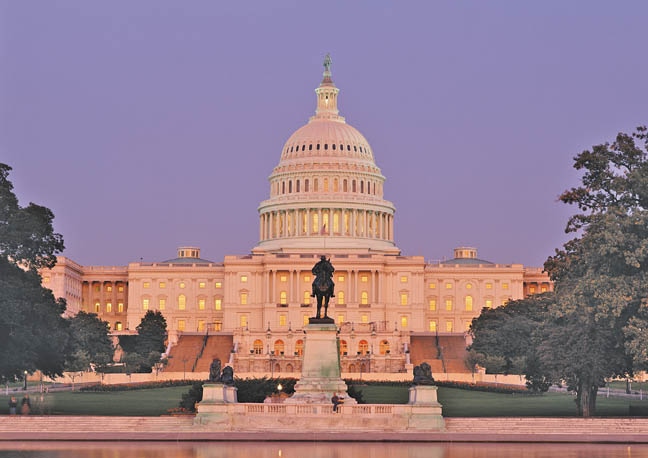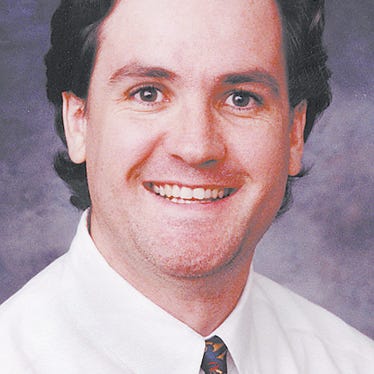
Late in 2010, Congress funded the controversial $1.25 billion Pigford II settlement. The funding came only after a protracted period of negotiations, lobbying and repeated Senate Democratic leadership head fakes regarding when funding votes would be held.
Since President Obama signed the Claims Resolution Act last December, many African Americans have asked about Pigford eligibility requirements and if there is still time to sign up as a claimant. In late January, to put those questions to rest – and ask several more on Keepseagle (the Native American class action suit against USDA) and new claims regarding fraud and Pigford – Farm Press spoke with Pigford class attorney David Frantz.
Frantz, based in Washington, D.C., is with the Fassett, Mary Jean, Conlon, Frantz, Phelan, & Pires law firm. Those familiar with the original, late-1990s Pigford case will recognize the name of Frantz’ partner, Alexander Pires, who is largely credited with constructing the original settlement.
Frantz spoke on Pigford and Keepseagle, the expected winnowing of claimant numbers, fraud allegations and the scrutinizing of claims. Among his comments:
There are a lot of folks that want to know if there’s still time to sign up as a Pigford II claimant.
“The claims process (for Pigford II) has not started yet. That won’t happen until after there’s a final settlement agreement approved by the court after a ‘fairness hearing.’
“So, no claims have been filed yet. However, to be eligible to file a claim in Pigford II, the individual must have filed a request to participate in Pigford I by June 18, 2008.”
So, June 2008 is the cut-off?
“Yes. If a farmer says ‘I’d like to sign up but I’ve never filed anything before in this case,’ then he, or she, is too late.”
Pigford II “is intended for people who tried to get into Pigford I, sent a written request to do so. But that request was turned down or not acted upon.”
A round number
Do you have any idea how many claimants there are, right now? A round number?
“Here, we’re talking about potential claimants. But there were 58,000 people who tried to get into Pigford I and missed the initial deadline of Oct. 12, 1999. They sent in a letter saying ‘I missed the deadline, I was sick’ or ‘I didn’t know about the case’ or something like that. But their request was turned down. So, there are 58,000 people who specifically had their requests turned down.
“There were others who sent in requests that were never acted upon. The reason they weren’t acted upon is the initial deadline – what we call the ‘late filing request’ – was Sept. 15, 2000. There were many people who sent in requests after Sept. 15, 2000, all the way up to June of 2008 saying ‘Hey, I want to get in.’ Those (requests) weren’t acted upon because they were after the late filing request deadline of Sept. 15, 2000, that was set by the court.
“So, you’ve got two groups: the 58,000 and the second group of an unknown number – probably somewhere between 20,000 and 30,000 – who, between September 2000 and June 2008, also sent in requests.
“So, that brings the possible total up to, possibly, 78,000 to 80,000 (claimants). Those are very rough numbers.”
Have you heard when the judge will conduct the ‘fairness hearing’?
“Not yet.
“As counsel in the case, we’ve not yet filed a request with the judge to approve the settlement. The reason for that is when the Senate approved funding for this back in November there were changes the Senate required. We’re trying to finalize those changes in the settlement agreement with the government. That hasn’t been concluded. “
How long have you been on the Pigford case? Were you with Alexander Pires?
“He’s my partner, since 1997.”
Fraud?
Can you talk about the charges of fraud (in Pigford) that have come to the surface in the last year, or so? I was talking to legitimate black farmers – guys with their plow in the ground – 10 years ago that said some tricksters were out there trying to jump on the bandwagon. Can you talk about that?
“It’s my opinion – and I’ve dealt with thousands of the farmers and, as you point out, have worked on the case for almost 14 years – these charges of fraud are exaggerated and unfounded.
“When the farmers talk about it, frankly, a lot of it is because of misunderstandings about the case and who may, or may not, be eligible. When others talk about it, I’m not sure what their motivations are.
“Remember, in the Pigford case every claim filed was closely scrutinized by the USDA. If an employee of the USDA thought there was fraud, he was required to report that either to his supervisor or to the USDA’s inspector general.
“Then, the inspector general would look at it and, if there was fraud, refer it to the FBI. I know of only three cases where the FBI took any sort of action to pursue any claims of fraud.”
(Editor’s note: When asked about fraud in the Pigford settlement, Agriculture Secretary Tom Vilsack has only cited the same three cases.)
“All these charges floating around now, in my opinion, have no basis.”
Do you think the Pigford II claims will be even more heavily scrutinized this time around because of the (fraud allegations)?
“I don’t know. The legislation passed by Congress requires scrutiny by the inspector general at USDA. It requires the Inspector General do a ‘performance audit.’ It also requires that the Comptroller General of the United States monitor the process.
“So, there may be additional scrutiny in this case. I guess that’s from the USDA’s perspective. What I experienced and saw is the USDA closely scrutinized Pigford I. So, I don’t know if they’ll do more than Pigford I. But, yes, it will be closely scrutinized.”
With potentially 75,000 claimants, is the $1.25 billion a fair number for your clients? Should it have been more?
“Remember, 75,000 sent in some written document that said, in effect, ‘please let me file a claim.’ There will not be 75,000 claims – there will be significantly less.
“And of the claims filed, not all will be approved. We’re not talking about a situation where $1.25 billion will be divided by 75,000 people. It will be substantially less than that.
“The $1.25 billion is roughly enough to cover 18,000 or 20,000 approved claims – something in that range. I certainly hope all the folks get full compensation but that may not be.
“With the numbers we’re talking about, if you were to guess, you’d say ‘it’s probable (the $1.25 billion) won’t be enough.’ Sure, we’d have preferred that there was full funding. But on the other hand, the $1.25 billion proposed by President Obama, I think is very fair.”
Keepseagle
Let me ask you about the other discrimination cases against USDA: Garcia (Hispanics), Love (women), and Keepseagle (Native Americans). Are you involved with any of those?
“I’m one of the counsels in Keepseagle. I’m not in Garcia or Love.”
On where Keepseagle stands…
“In that case, there is a settlement agreement: $760 million in compensation and debt relief. Judge Sullivan (of the U.S. District Court in D.C.) has given preliminary approval to that settlement. There will be a fairness hearing on April 28, 2011, when the judge decides to give final approval or changes need to be made.”
The Pigford settlement is structured around two claimant options. Winning a Track A claim is easier and means a $50,000 payment, loan forgiveness, and prime future loan positioning. Each case is heard by an adjudicator. The overwhelming majority of claimants go with Track A.
Track B claims are reserved for those wanting more than the awards listed above. Evidence requirements are much more stringent than with Track A cases. Winners of Track B cases, however, stand to get millions of dollars along with loan forgiveness and other considerations.
Is the Keepseagle settlement set up like Pigford’s Track A/TrackB?
“Yes. It’s similar.”
Is Keepseagle closed to new claimants?
“The claims process has not begun.
“Keepseagle is not like Pigford II where we had to deal with the issue of late claims being filed. This is the first settlement of the (Keepseagle) case.
“So, any Native American who satisfies the eligibility requirements, which are similar to Pigford – the ‘individual farmed or attempted to farm’ from 1981 through 1986, tried to get a loan from USDA and, in some manner, was treated unfairly (like) the loan was denied or loan terms were unfair, and made a complaint about discrimination – may, and we hope will, file claims. I’m sure there are many we haven’t heard from yet.”
BigGovernment.com
For the past few months, BigGovernment.com – a news aggregating Web-site -- has investigated the Pigford case and spoken to numerous case insiders and players who acknowledge fraud has occurred. Few media outlets have picked up on the site’s findings – perhaps fearful of a string of controversies following BigGov’s right-wing leader, Andrew Breitbart.
For more on emerging fraud claims see BigGovernment
Last summer, Breitbart released several video clips of black USDA/FSA employee, Shirley Sherrod, speaking at a National Association for the Advancement of Colored People (NAACP) convention about a white farmer she’d been reluctant to help, at least in part because of race.
Following the clip’s release, Sherrod was immediately fired by Vilsack and slammed by NAACP leadership. Later, when video of the full speech emerged and the white farmer interviewed, it turned out Sherrod had actually rethought her position and helped him.
Vilsack changed his tune, apologized and offered Sherrod another position at USDA.
In the aftermath, the NAACP and numerous media talking heads castigated Breitbart for not having released the full video of Sherrod’s speech. For his part, Breitbart maintains the video clip reached him already edited.
In any case, the Sherrod incident spurred Breitbart to dig into the Pigford settlement – something he and documentary filmmaker, Lee Stranahan, continue to do enthusiastically.
Asked if he’s seen BigGovernment’s claims, Frantz says he knows of no specific cases of fraud but “while anything in life is possible … the fact is every single claim was independently scrutinized by USDA, very closely. They filed voluminous responses to many claims.
“I’d think if there was anything other than a rare episode of fraud, USDA would have detected it. I’m sure they wouldn’t have hesitated to report it.”
Anything we haven’t covered that you want our readers know about?
“In terms of Pigford II, we’re very pleased that, after all these years, these farmers who, without any dispute, suffered discrimination by USDA, will finally have an opportunity to be compensated. The same is true for the Native Americans. And we hope it will bolster the farm economy for the socially-disadvantaged farmers.”
I do have one more question. It involves the fact that the USDA apparently hasn’t fired anyone for these acts of discrimination that cost taxpayers potentially billions of dollars. The USDA won’t even say if they disciplined anyone for these acts. Can you comment?
“The only comment I can make is if USDA has knowledge that an individual did discriminate against minority farmers and ranchers, then that act of discrimination would be a violation of the agency’s rules and regulations. One would expect the agency would take disciplinary action.
“If superiors of some one – a farm loan manager or officer – has evidence of discrimination, they should take disciplinary action.”
About the Author(s)
You May Also Like






